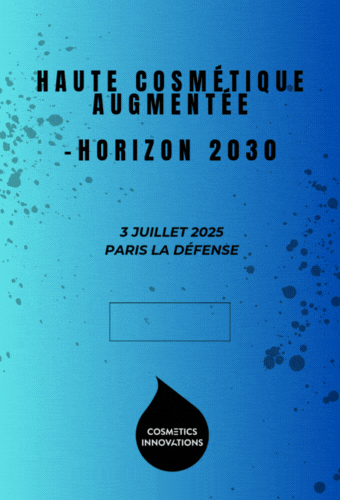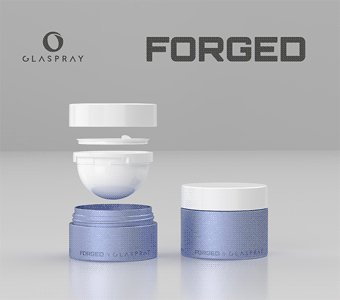
Beauty standing the test of time
In beauty, time becomes the accomplice of performance: it is time that optimizes the quality of ingredients. The new Art du Soin line from Diptyque is based on the concept of "infused cosmetics" obtained through slow extraction processes. The Infused face Oil from Diptyque is an invitation to contemplation of dried flowers that, over time, continue to infuse. It is also the return to common sense that values quality over quantity and that streamlines catalogs to only keep the best. Chanel with La Solution 10, offers only ten ingredients, each participating in the perfect balance for a simple and efficient care.
It is also time-respected, a past that is honored by giving added value to it as was done with the new Aesop store in Chicago where the bricks steeped in history were preserved and valued on a wall paying tribute to the past of the place.
It’s finally DIY time, with these ready-to-mix cosmetics to preserve their freshness and become the new ritual of personalization.
New technologies coexist with this new vision of time saving luxury. Technologies give way to "chosen" time, free up time for oneself, to apply a face mask or for finding new products. The French app Selectionnist, enables by flashing an article or a beauty product in a store, to directly access the website and buy it without leaving one’s couch.
Beauty at the age of transparency
Repeated food scandals and rising concerns about ingredients (their origin, toxicity) have reinforced the need for a better control of the supply chain. It has compounded the lack of confidence in big companies. People want to free themselves from an economic model and consume differently by regaining control over their consumption.
When French people are asked what type of information they want on the products they buy, one out of two wants to know its origin and where it was manufactured. Besides, Chefs are also carrying out a revolution for our taste buds by staying in line with seasons and the environment, with for example 100% local ingredients. This is the case with the restaurant Vila Lena in Tuscany which has its own vegetable garden. Among alternative beauty brands the mimicry of the "farm to table" trend to the "farm to bottle" trend can be observed. One of its featured brands is Tata Harper, positioned on the "farm to table" concept. The brand owns 1,500 acres in Vermont. According to Forbes, its growth was of + 600% in 2014, and its success is based on serums sold between 90 and 350 euros. The French brand Douces Angevines or the US brands Farmacy, Wildcare and Youth to the People, advocate the same principles.
The age of access undermines the scheme of ivory tower and secrets that have long been the rule in the beauty industry. While craftsmanship is becoming a new development model that arouses desire, the relationship to the brand is enriched with the promotion of talents and the mastery of gestures. New work spaces celebrate the values of work, of skills, or of transparency. A perfect example is the new Joya store in Brooklyn, a workshop store where craftsmen work. These examples give plenty of food for thought to luxury brands, since the mystery and secrecy that were traditionally part of the core values of luxury, are now undermined by a requirement for transparency.
The beauty and the desire "to be oneself"
The desire for distinction, differentiation, is also the reflection of a freer and more mixed society. Taboos concerning skin tones, ages, genders explode to reveal plural archetypes that celebrate difference. In the US, according to a survey by J Walter Thompson, 67% of the 18 year-olds and over consider it is "cool" to see transgender people in ads, which is the sign of a progressive brand that triggers empathy. In beauty, alternative brands advocate unisex or "gender fluidity" (Made in Youthland, Milk Makeup or Make with its Naxos collection).
Freedom to be what one wants to be as an individual but also together, within a community of values. New US retailers offer more than a point of sales for cosmetics, but community places centered on the same passion or researches. Credo (San Francisco and New York) is a store that promotes the "credo" of naturalness, fair trade and sustainability. The search for more humanity in consumption has become the new rallying sign of communities. As if confidence necessarily implied the need to unit around projects and shared values.
Beauty and the unexpected
Beauty pop-up stores, beauty trucks, the pleasure of rediscovering a brand beyond standard and predictable codes offered by a department store or to live a new in-store experience - for example the pop-up store of the Make brand last May 2016.
The unexpected also with unprecedented combinations between two places with different services but shared values. Like this alliance between the Detox Market store, a concept store dedicated to "healthy" beauty and the Café Gratitude in California, a vegetarian restaurant.
Luxury is the freedom to see the world like a breath of fresh air and renewal and enjoy different consumption behaviors. It means surprise to seduce, create the event to better emerge and foster emotions to share on social networks.
Conclusion
Luxury is constantly changing. Vinyl, which was thought to be a thing of the past, has become an icon of the younger generations. While music is now more and more a mere computer file, vinyl records are becoming luxurious and iconic items. "In our bustling societies, delays sometimes give a head start," wrote Sartre in The Words.
And what about tomorrow? Certain items or experiences, we would never have thought of, could become luxury "objects". This is the case with conversation which, according to the sociologist Sherry Turkle, is starting to disappear in favor of cold and technological interactions. With the arrival of chatbots (conversational robots), some believe that a real conversation with a human being will be tomorrow a paid for service. It is true that promoters of chatbots, at Microsoft or Facebook, do not hesitate to boast that it will soon be difficult to make the difference between a robot and a human being...
As for Beauty, change is also at the core of tomorrow’s industry. With for example, the arrival of "beauty hackers", a new generation of brands that tap in this desire for freedom and therefore make theirs, these new dimensions of luxury or of value creation. They are full of fresh ideas, agile in their modes of functioning and express themselves freely.
Similarly to our representations of society, our representations of luxury also evolve. Today, with freedom becoming a most scarce "resource", one of the missions of luxury is to offer its customers total emancipation.




























